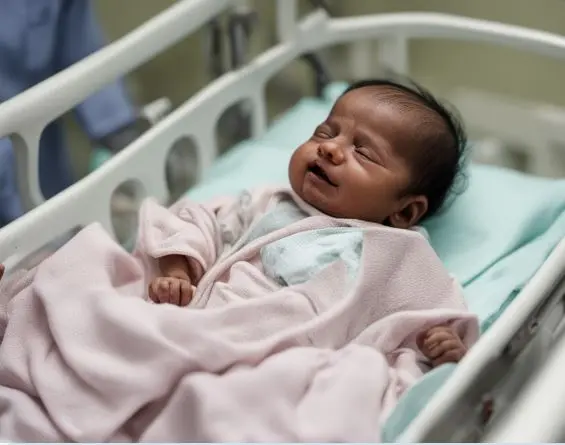
DIPHALLIA: BABY BORN WITH TWO PENISES, NO ANUS IN PAKISTAN
A baby has been born with two working penises but no anus. It is a rare medical phenomenon known as diphallia.
However, one was 1 cm bigger than the other. Only 100 cases of diphallia have even been recorded in medical literature.
According to doctors, the Pakistani boy’s penises are ‘normal-shaped’. They published the extraordinarily rare case in a medical journal, MailOnline reported.
The boy was also able to pass urine ‘from both orifices’, the surgeons in Islamabad revealed.
Medics left both members intact, but did not reveal why.
To pass stool…
But they did perform a colonoscopy to open him up so he could pass feces.
According to the team’s publication in the International Journal of Surgery Case Reports, the likelihood of developing diphallia is one in six million.
The first occurrence was reported in medical literature in 1609, and only 100 cases have been documented overall.
Doctors who treated the boy said 1 percent of sufferers also have a defect. This affects their anus or rectum.
However, despite what their numbers would imply, scientists did not say whether or not it meant this youngster was the first person in history to have this defect.
The boy, born after 36 weeks, was treated at the Children’s Hospital at the Pakistan Institute of Medical Sciences.
His parents took him to the hospital’s emergency department right after he was born. But they had no family history of any birth defects.
Doctors examining him spotted that he had no anal opening and two ‘well-formed phalluses’, one of which was 1.5 cm, while the other was 2.5 cm.
One bladder, two urethras
Scans revealed that he had a single bladder attached to two urethras. This means he passed urine from both penises.
Surgeons diverted one end of his colon through an opening in the lower left side of the abdomen. This will allow him to defecate.
The boy was monitored for two days following surgery. He was then discharged and a follow-up appointment was arranged.
It is unclear how diphallia occurs, and there is no known single risk factor. But having two penises is thought to happen by chance when genitalia develop in the womb.
Patients can have complete diphallia, which is when both penises are well developed. Or partial diphallia, when one penis is smaller or deformed.
